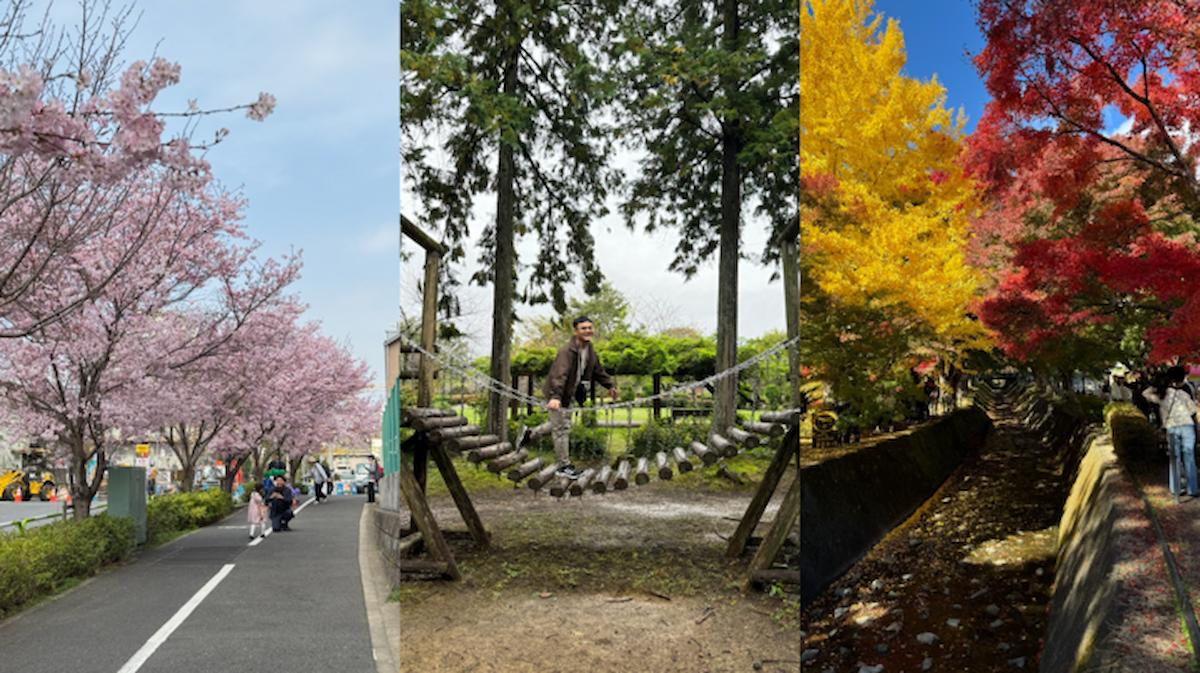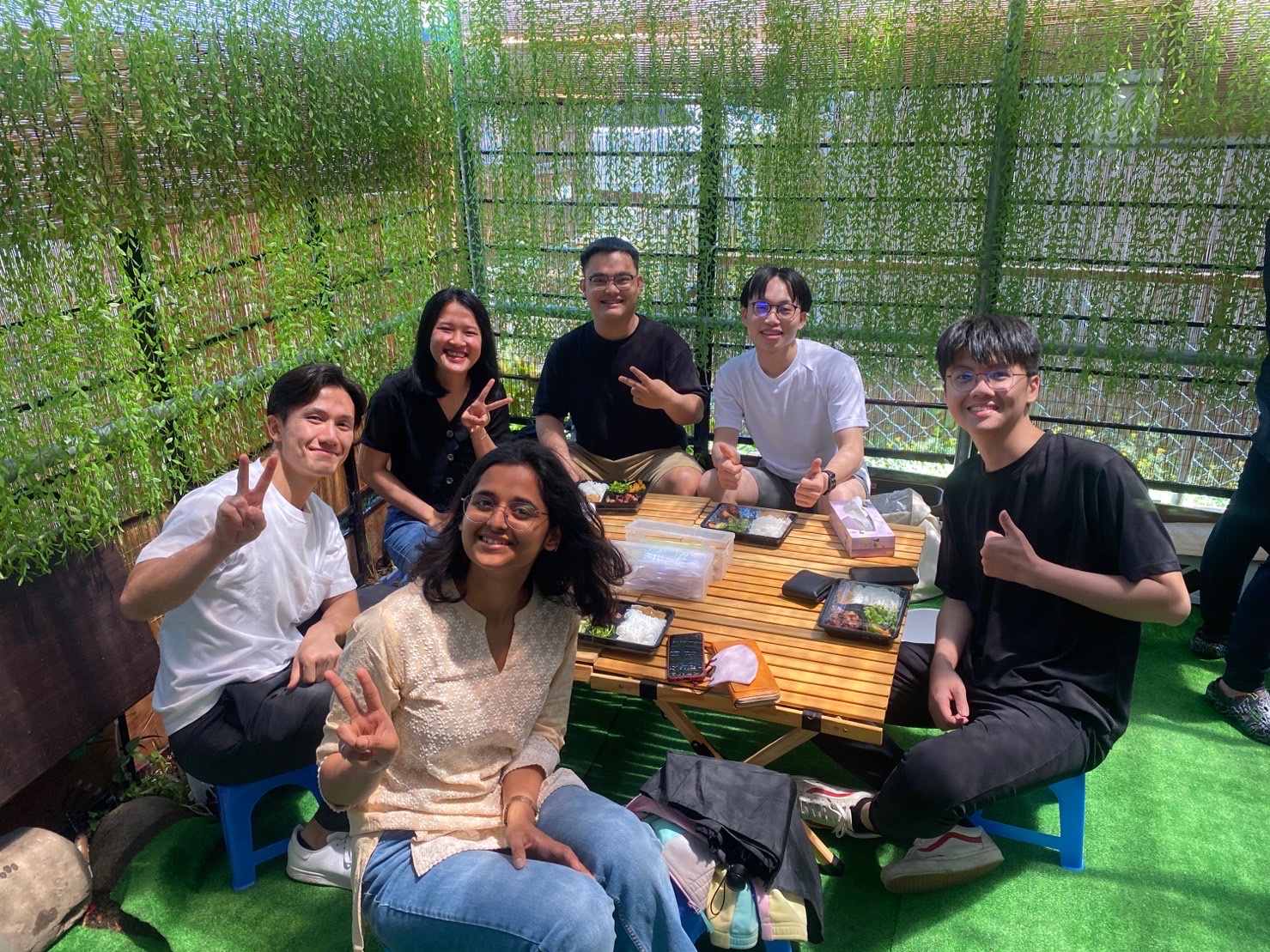"When you come to Japan, you must learn to bow." That’s a common saying many young Vietnamese hear at the start of their journey to the Land of the Rising Sun. Vietnamese workers in Japan are often pictured in a strict, highly disciplined environment where rules come first.
But for Quoc Bao, a graduate of Ho Chi Minh City University of Technology and now a logistics engineer in Japan, the story unfolds differently. Working at a multinational company, he has carried with him the adaptability and creativity of Vietnamese professionals, qualities that help soften rigid structures and highlight his value within a global context.
Two years in Japan, followed by his return to the company’s Vietnam office, gave Bao a deeper understanding of how young Vietnamese can confidently express themselves in international workplaces.
When you first came to Japan, what was your initial impression of the work culture?
Let me start with how I ended up here. From my freshman year, I joined an intensive Japanese program. At first, it was simply to pick up another language; I never imagined I’d actually work in Japan.
By junior year, when Japanese companies started recruiting, I applied and got in. After that, I studied Japanese full-time for a year, earned my N2 certification, and went to Japan as an engineer.
In my language class, there were about nine of us, each assigned to different companies. For me, it was both a challenge and an opportunity. My mindset was simple: if the chance is there, take it, learn, and experience.
What impressed me most at first was that the company didn’t just throw new hires into the deep end. Training lasted from six months to a year before handling major projects. That gave me time to observe and learn from my seniors. By the time I started real work, I felt confident.
Another big difference was the discipline. Punctuality, following processes, honoring deadlines, everything was structured so that everyone could rely on each other, ensuring smooth workflows.

Your company is multinational, with colleagues from different countries. How does that diversity show up at work?
At my workplace, colleagues come from Japan, Malaysia, Indonesia, and India. This diversity made me realize how work styles differ across cultures.
In my view, the Japanese usually prefer safe, less risky solutions. Some colleagues from India or Southeast Asia value personal comfort—if they’re tired, they rest, without stressing too much over deadlines. Vietnamese like me sit somewhere in the middle: disciplined enough to follow processes but flexible enough to adapt quickly.
That’s where I see the value of the “Vietnamese touch.” We dare to think, dare to act, and are not afraid to fail and try again. This balance and initiative make it easier for us to adapt in multinational teams: we blend in without clashing, yet confidently push for new ideas.
That’s how I leave a distinctly Vietnamese imprint on Japan’s disciplined workplace.
What lessons from Japan would you bring back to apply in Vietnam?
I work in logistics, designing automated warehouse systems. The job spans consulting with clients, floor layout design, machine calculations, software programming, and project handovers.
It may sound dry, but in reality, it’s exciting because I combine engineering with client-facing work and solution presentations.
The most surprising part was the documentation. Everything had to be written down. For newcomers, it’s a huge advantage, you can learn quickly by reading. For those already working, it’s a heavy burden because it takes so much time. But this systemized approach is what keeps things running smoothly.

After two years in Japan, I returned to Vietnam to continue with the company’s local office. Despite being the same company, operations differed.
In Vietnam, work hours are more relaxed, less rigid. But the challenge lies in coordination: processes aren’t always clear, responsibilities blur, and people hesitate to take the blame.
In Japan, mistakes are shared, processes are transparent, and teamwork is smooth. In Vietnam, however, the atmosphere is warmer: colleagues invite each other to lunch, to bubble tea—there’s more bonding. In Japan, you can go a whole day without saying a word to anyone.
If I had to pick two takeaways for the long run, they would be discipline and teamwork. Japan taught me to systemize. Vietnam gave me connection, joy, and flexibility. Combine both, and you get something truly effective.
What advice would you give young Vietnamese preparing to work in Japan?
During my two years in Tokyo, I flew back to Vietnam a dozen times—for Tet, weddings, or simply because I missed home. I also joined the Vietnamese community through charity and blood donation.
The Vietnamese community in Tokyo is huge, second only to the Chinese. From restaurants and barber shops to clothing stores, you can live a very Vietnamese lifestyle right in the middle of Japan.
To me, keeping your Vietnamese identity isn’t just about traditions. It’s about bringing flexibility, connection, and a willingness to take on challenges, qualities that enrich any multinational team. That’s the “Vietnamese identity” I’ve carried with me everywhere.
For young people heading to Japan, my advice is to invest in Japanese. You can be skilled, but if you can’t communicate, you’ll be undervalued. Language is the bridge to showcase your talent.
Also, respect their discipline, but don’t abandon Vietnamese flexibility and initiative—that’s our strength in the eyes of international colleagues.
In the end, my reason for returning was simple: Japan may pay higher, but family and friends are far away. For me, being close to loved ones matters more. Maybe that, too, is part of being Vietnamese - always valuing family.
Closing
Bao’s story shows that integration doesn’t mean losing identity. On the contrary, blending Japanese discipline with Vietnamese flexibility creates a unique synergy: structured yet creative. It’s a lesson today’s Vietnamese engineers can take anywhere in the world.
If a young engineer can embed “Vietnamese identity” into his daily work, then on a larger scale, FPT Consulting Japan is doing the same, bringing Vietnamese technology to conquer one of the world’s toughest markets.
In the Made By Vietnam: Beyond The Production Hub firechart, look forward to CEO Nguyen Huu Long sharing how this pioneering company is helping Vietnam evolve from a “manufacturing hub” into an innovation powerhouse at Vietcetera Open 2025.
Register HERE to be part of the journey.Returning to Tokyo with a brand-new look after its debut in September 2024, Vietcetera Open is more than just a gathering space. It offers meaningful connections, practical opportunities, and tangible value for the Vietnamese community in JapVi, while also contributing to the global visibility of Vietnam’s national brand.
(1) Conference
- Time: 13:00 – 17:00 (JST) | September 27, 2025
- Place: 4F Akasaka Intercity Conference Center, 1-8-1 Akasaka, Minato-ku, Tokyo
(2) Networking Reception
- Time: 18:00 – 21:00 (JST) | September 27, 2025
- Place: Two Dogs Taproom, ARIES Bld. 2F, 3-15-24 Roppongi, Minato-ku, Tokyo
Special thanks to our sponsors & partners for accompanying us in this event:- Title Sponsor: FPT Japan- Program Sponsor: Reazon Holdings, Money Forward & Tokyo Corporation- Engagement Partner: Vilasia- Travel Partner: Vietjet Air- Strategic Partner: Solara & Co- Communications Partner: VANJ - Vietnamese Academic Network in Japan, VYSA (Vietnamese Youth and Student Association in Japan), Cộng đồng DHS Đông Du, Overseas Vietnamese, FTU Alumni in Japan & Legacy Brand.
